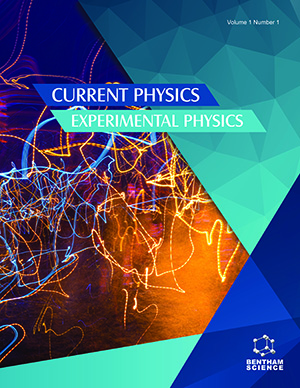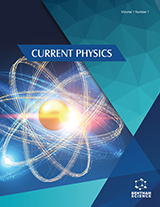About The Section

Experimental Physics
Publishes original research articles, letters, case reports, reviews/mini-reviews and guest edited thematic issues on various topics related to Experimental Physics.








Mario D'Acunto is a permanent researcher at the Institute of Biophysics, Pisa, Italy. During the course of his scientific career, he has made pioneering contributions in the areas of Nanotribology, Nano-optics and Nanophotonics and Scanning Probe Microscopy, Nonlinear Dynamical Systems and Quantum Biology. In 1999, he received a PhD on Nanotribology, first in Italy, from the University of Pisa. Dr. D'Acunto's scientific achievements include a new model for Onset Wear on atomic scale; Near-Field Plasmonic behaviour of metal nanoparticles interacting with biological systems, Super-Resolution methods for Image Analysis in Microscopy and contribution of Quantum Physics biology and to the emergence of life. Dr. D'Acunto has given about 10 invited plenary talks at international conferences. He is author and co-author of more than 120 indexed papers, cited ca. 1300 with index h=18, (6 papers cited > 50 times), 1 book titled Nature-inspired Computation, where, among various natural systems, nanophotonic paradigms stimulating and leading to computation skills are deeply described, and 10 monographic papers (book chapters).



Andrei V. Savilov received the M.S. in Physics from the Nizhny Novgorod State University in 1992. In March 1996, he got the Ph.D. degree in Physics, and in January 2005, he got Dr.Sci. degree in Physics, Inst. Appl. Phys. RAS. In 1999, he was awarded the Medal of the Russian Academy of sciences. Now he is the head of the Laboratory of high-frequency microwave oscillators, High-Frequency Relativistic Electronics Department, Institute of Applied Physics RAS. Simultaneously, he has a position of Professor of physics at Lobachevsky State University of Nizhny Novgorod. Scientific interests: gyrotrons, cyclotron masers and free-electron masers (electron-wave interaction optimization, mode competition, novel schemes).




Dr. Cristina Mazzotta is the Researcher at ENEA Research Center of Frascati, Rome, Italy, in the Fusion and Technologies for Nuclear Safety and Security Department. She got a Master's Degree in Physics in diagnostics for Astroparticle Physics from the National Institute of Nuclear Physics. She received her PhD in Energetics from the University of Rome. Her research activity was devoted to Plasma Physics: magnetic confinement Fusion with the tokamak reactor. She became a scientific coordinator and leader of the Diagnostic Coordinator group. She was involved in EU collaborations (e.g. Joint European Torus, UK). She deals with applications of Bragg Fiber gratings as photosensitivity devices. She taught Applied Physics at the University of Brescia. She is the co-author or first author of 180 publications or proceedings.



Zhu Kai obtained a Ph.D from Wuhan University, China in 2006. Now he is working at the Institute of High Energy Physics, CAS, China as an associate professor. The main studies include BESIII experimental analysis and related phenomenological physics, which is involved with non-perturbative QCD. His current interest focuses on charmonium decays and XYZ states.




Prof. Kui-Yong Liu received his B.A and M.A in theoretical physics in Liaoning University and earned his Ph.D. in Beijing University, in 2004. He is currently the dean of the School of Physics at the Liaoning University. His main focus of research is Heavy Flavor Physics, especially in heavy quarkonia production. Recently, he has also focused on the interaction of light and materials.




Wenchao Zhou received the Ph.D. degree in mechanical engineering from Changchun Institute of Optics, fine Mechanics and Physics (CIOMP), Chinese Academy of Sciences, Changchun, China in 2014. Now he is an associate professor in State Key Laboratory of Applied Optics, CIOMP. His research interests include optical nanostructure design, label-free optical superresolution bio-imaging and bio-sensing.






